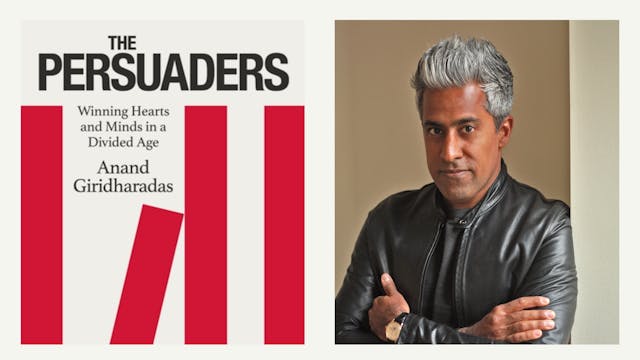What is the role of corporations in the energy transition?
History & Social Policy
•
56m
Do corporations lead or do they follow? Do they push government or do they work within whatever legal frameworks are of the day?
Of course, they do all of the above. They always have. And in the process they have been crucial cogs of progress – much of it good, but not all. That is now changing. Corporations will remain as engines of growth and innovation but increasingly they find themselves partners in a mission that must transcend the traditional push-and-pull over regulation and taxation that has characterised the relationship between government and business. There’s a bigger goal here; the energy transition. And there’s no time left to pull in opposite directions.
In this new partnership – which will doubtlessly have its ups and downs – corporations are uniquely positioned in the fight against climate change. Unlike governments, they often cross state lines and national borders, influencing people across the globe. The biggest corporations wield great economic power, and have the flexibility to implement sustainability projects on a faster time scale than many governmental programmes. They influence culture, the economy and people’s purchasing choices.
But corporations are, more than ever, the people who work at these companies. And they are the customers who consume their goods and services. And both constituencies have values that they are less likely to compromise on than at any point in our history. They insist on corporate ethics, a commitment to diversity, equity and social responsibility. Climate, racial justice, inclusion – these issues and more are now baked into what a corporation is and must be. In our current climate, the corporations not only have the power, but they have a responsibility to safeguard the planet and the people on it. And never before have corporations embraced – sometimes slowly, often imperfectly – this new responsibility.
In this event we looked at how corporations are changing and must change more as we journey from 2022 to 2050 – and beyond.
Up Next in History & Social Policy
-
Simon Sebag Montefiore, Kate Mosse an...
Powerful women have too often been overlooked by history. Of course we know about Boudica, Cleopatra, Elizabeth I and Catherine the Great. But there are many others whose stories are just as dramatic and deserve to be better known, such as Wu Zhao, who poisoned the crown prince and became the fir...
-
Persuasion in an Age of Polarisation,...
The lifeblood of any free society is healthy disagreement: people with different views trying to change each other’s minds through argument and persuasion. But many democracies across the world are suffering a crisis of faith in the values of debate and have instead turned to writing off those wh...
-
Wonders of Dickens’ A Christmas Carol...
What is it about Charles Dickens’ A Christmas Carol that has enchanted the public since its publication in 1843? Few people are as well placed to answer that question than John Mullan and Simon Callow. Mullan is a professor of English literature, whose recent book, The Artful Dickens, reveals the...



